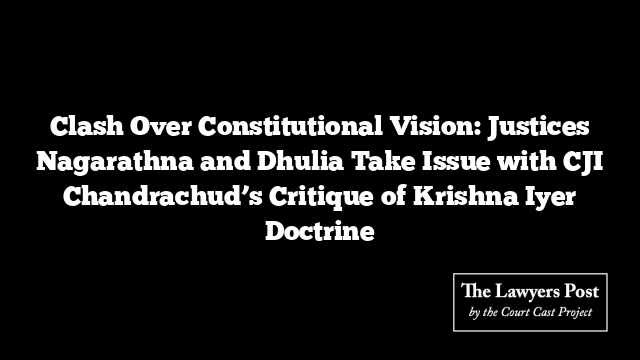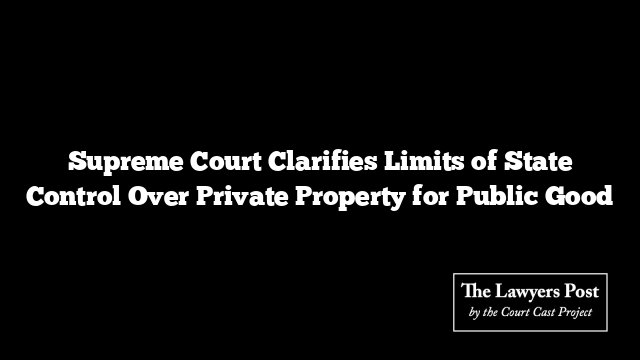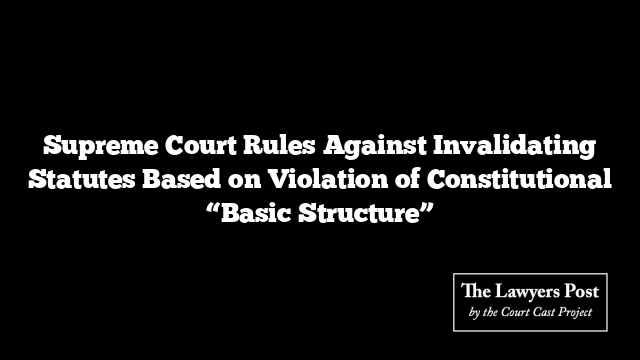In a sharp divergence of views, Justices B.V. Nagarathna and Sudhanshu Dhulia have voiced strong objections to the remarks made by Chief Justice D.Y. Chandrachud regarding the Justice Krishna Iyer doctrine. Their disagreement unfolded during a ruling concerning the scope of “material resources of the community” under Article 39(b) of the Constitution, with the two judges disputing the Chief Justice’s critique of Iyer’s approach.
Justice Nagarathna, in her dissent, dismissed CJI Chandrachud’s comments as “unwarranted and unjustified,” while Justice Dhulia called them “harsh” and suggested they could have been avoided. This judicial clash has once again brought into focus the enduring tension between progressive interpretations of the Constitution and contemporary economic policies.
At the heart of the debate is CJI Chandrachud’s majority opinion, which rejected Justice V.R. Krishna Iyer’s expansive view in State of Karnataka v. Ranganatha Reddy (1978), where private property was included within the “material resources” that the state must manage for the common good. CJI Chandrachud, alongside his colleagues, argued that Iyer’s interpretation aligned too closely with a specific economic ideology, which he deemed incompatible with the constitutional vision of economic democracy.
Justice Nagarathna, however, took issue with this, particularly the suggestion that Justices Iyer and O. Chinnappa Reddy were influenced by an economic theory at odds with the Constitution’s broader goals. She firmly disagreed with the notion that their judgments amounted to a “disservice” to the Constitution. She pointed out that these judges were interpreting the law based on the social, economic, and constitutional contexts of their time, and that shifting economic paradigms should not lead to discrediting past judicial decisions.
“I wonder whether we should condemn former judges simply because their interpretations were shaped by the economic and social realities of their era,” Justice Nagarathna remarked, questioning the fairness of such retrospective judgment. She also highlighted how today’s global economic policies, particularly since the liberalization of the 1990s, should not be used to disparage the wisdom of past judicial decisions.
Justice Dhulia, in his opinion, expressed deep respect for the Krishna Iyer and Chinnappa Reddy doctrines, emphasizing their roots in humanism, fairness, and equity. He lamented the harshness of the Chief Justice’s remarks, asserting that these doctrines have illuminated legal thought with empathy, particularly during challenging times. For Dhulia, the Krishna Iyer Doctrine, rooted in principles of social justice, remains a cornerstone for interpreting constitutional obligations towards the welfare of the people.
This ongoing debate underscores the delicate balance between evolving economic strategies and the foundational principles of India’s Constitution, and it signals the ongoing conversation on how judicial perspectives must adapt to meet the challenges of changing times without undermining past wisdom.





